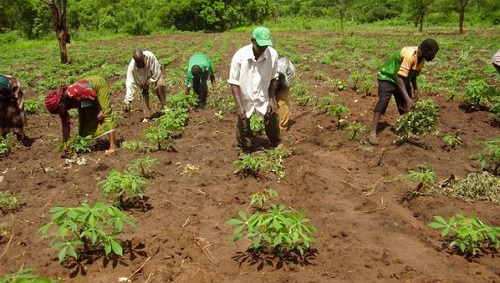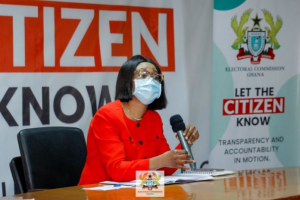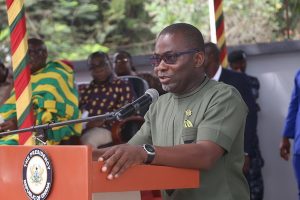Farmers in the Oforikrom Municipal area of the Ashanti Region have appealed to Government to release seized water pumping machines from galamsey sites to them.
According to Mr Benjamin Afranie, a horticulturist amongst them, this would promote irrigation farming, boost agriculture production and attract more young people into farming.
“We have heard in the news that government is seizing pumping machines and excavators from the galamsey sites and burning them and the people are complaining. So my appeal is that, government should stop burning them and give the pumping machines to farmers so that we can pump more water to irrigate our farms and feed the nation,” Mr Afranie said in an interview with the Ghana News Agency on his farm at Boadi junction in Kumasi.
This was when a team of implementers of the “Entrepreneurship in Horticulture: Farming as a Business” project visited him at his model farm.
The team made up of delegation from the Delft University of Technology (TU Delft) in the Netherlands, the Kwadaso Agriculture College (KAC), the Holland Green Tech, and the Kumasi Business Incubator Hub at the Kwame Nkrumah University of Science and Technology (KNUST), also visited the farm alongside some 25 horticulture and entrepreneurship students undergoing training in the project at KAC, to interact with the lead farmer.
Mr Afranie said they needed water for all year round farming and prayed government to intervene and make agriculture appealing and rewarding.
He mentioned labour as one of the critical challenges facing farmers and said the use of water pumping machines could reduce labour cost.
Mr Afranie also said because of the changing rainfall patterns, it had become critical that irrigation services, aided with pumping machines, were used by farmers so they could produce all year.
He thanked President Nana Addo Dankwa Akufo-Addo for initiating various policies to help farmers, especially the Planting for Food and Jobs programme, and appealed to the President to ensure that subsidized fertilizers and other farm inputs were made available on time and distributed throughout the year.
Narrating how he entered into the horticulture sector, Mr Afranie who used to be a storekeeper, said he had to abandon his first job due to persistent theft and armed robbery attacks.
He said after thorough considerations, he acquired land and started to grow vegetables, and through hard work, he had received two best farmer awards within the last three years.
Mr Afranie, however, admitted that the intervention under the “Entrepreneurship in Horticulture: farming as a business project,” being funded by the European Union Archipelago project, which he signed onto for barely a year, had made it possible for him to overcome challenges of finance, proper application of pesticides, proper planning to beat better prices, labour, and unfaithful aggregators.
Expressing much optimism about the project, Mr Afranie said: I’m confident that I’m now on the track of producing quality vegetables to feed mother Ghana.”
Madam Gloria Temmah Gambrah, Municipal Chief Executive, Oforikrom Municipality, commended the implementing partners for bringing the project to the newly created Municipality, saying the Assembly welcomed such initiatives that would directly grow the local economy.
She urged the farmers to stick to good farming practices that would produce “healthy foods for the markets.”







